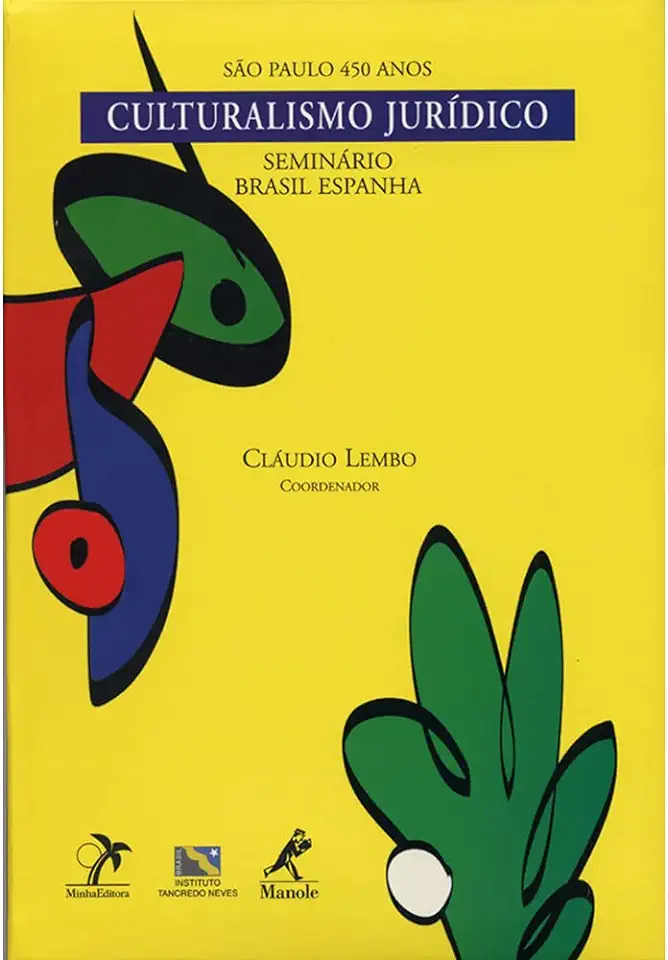
Legal Culturalism - Claudio Lembo
Legal Culturalism: A New Approach to Comparative Law
Introduction
In his groundbreaking book, Legal Culturalism, Claudio Lembo offers a new approach to comparative law that challenges traditional notions of legal systems as objective and neutral. Lembo argues that law is not simply a set of rules and regulations, but rather a product of the culture in which it is embedded. As such, he argues that comparative law must take into account the cultural context of legal systems in order to understand how they function and how they interact with each other.
Key Concepts
Lembo's theory of legal culturalism is based on the following key concepts:
- Culture: Culture is the shared beliefs, values, and practices of a group of people. It is the lens through which people see the world and make sense of their experiences.
- Legal culture: Legal culture is the culture of a particular legal system. It includes the beliefs, values, and practices that shape how law is created, interpreted, and enforced.
- Comparative law: Comparative law is the study of the similarities and differences between legal systems. Traditional comparative law has focused on the formal structures of legal systems, such as their constitutions, laws, and court systems. Lembo argues that comparative law must also take into account the cultural context of legal systems in order to understand how they function and how they interact with each other.
The Benefits of Legal Culturalism
Lembo's theory of legal culturalism offers a number of benefits over traditional approaches to comparative law. First, it provides a more nuanced understanding of how legal systems function. By taking into account the cultural context of legal systems, Lembo is able to show how law is shaped by the beliefs, values, and practices of the people who live under it. Second, legal culturalism offers a more critical perspective on comparative law. By challenging the assumption that legal systems are objective and neutral, Lembo opens up the possibility of questioning the legitimacy of certain laws and legal practices. Third, legal culturalism provides a more practical approach to comparative law. By understanding the cultural context of legal systems, lawyers and policymakers can better understand how to interact with them and how to resolve conflicts that arise between different legal systems.
Conclusion
Legal Culturalism is a groundbreaking book that offers a new approach to comparative law. Lembo's theory of legal culturalism provides a more nuanced understanding of how legal systems function, a more critical perspective on comparative law, and a more practical approach to resolving conflicts between different legal systems. This book is essential reading for anyone interested in comparative law, legal theory, or the relationship between law and culture.
Why You Should Buy This Book
If you are interested in learning more about legal culturalism, I highly recommend that you purchase this book. Legal Culturalism is a well-written and engaging book that is accessible to both scholars and general readers. It is a must-read for anyone who wants to understand the relationship between law and culture.
Here are a few reasons why you should buy this book:
- It offers a new approach to comparative law that challenges traditional notions of legal systems as objective and neutral.
- It provides a more nuanced understanding of how legal systems function by taking into account the cultural context of law.
- It offers a more critical perspective on comparative law by questioning the legitimacy of certain laws and legal practices.
- It provides a more practical approach to comparative law by helping lawyers and policymakers understand how to interact with different legal systems and how to resolve conflicts that arise between them.
If you are interested in learning more about legal culturalism, I highly recommend that you purchase this book. It is a valuable resource for anyone who wants to understand the relationship between law and culture.
Enjoyed the summary? Discover all the details and take your reading to the next level — [click here to view the book on Amazon!]